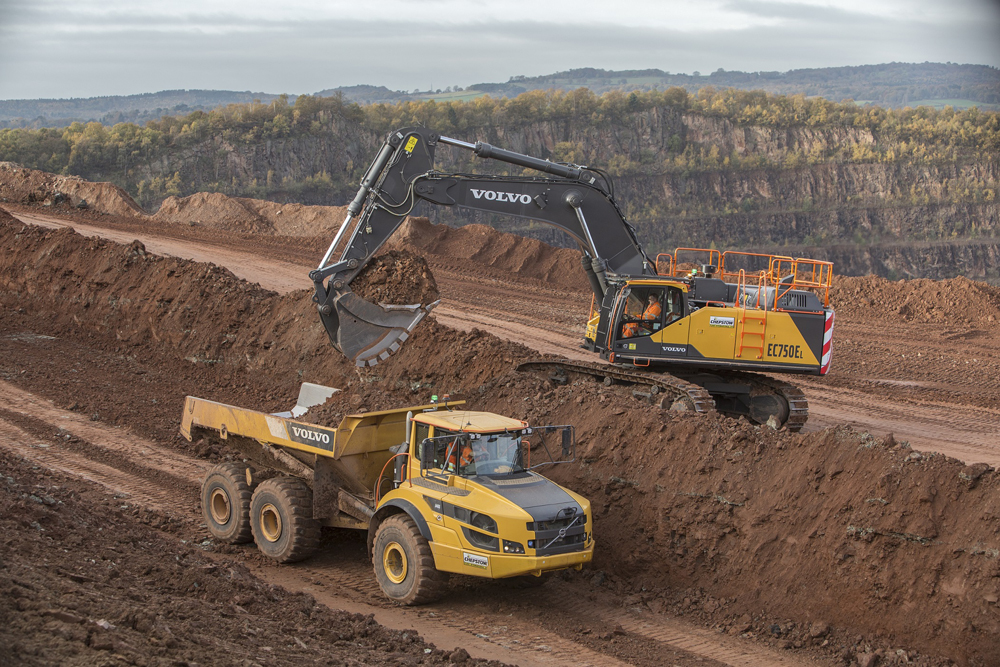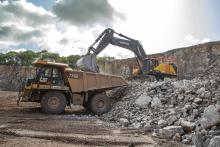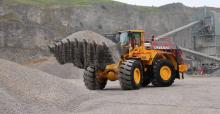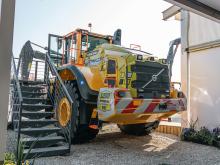
The pandemic is the biggest economic and public health crisis we’ve faced in modern history. Brexit is the biggest political upheaval for decades. Yet in time, both will fortunately pass. On the other hand, climate change is here forever, unless we address it urgently.

The issue won’t go away, and there’s no doubt that increased human activity and the greenhouse gases emitted as a result need our attention. Since the Industrial Revolution, carbon dioxide levels have risen by more than 30%, and we’re now seeing temperatures increase, sea levels rise, and air quality worsens as a direct result.
Our actions have had a spiralling effect for many years, and it was only when lockdown restrictions, travel bans and factory closures swept across the globe that we could truly see the impact that we’re having on the planet, and the benefit of turning things around. Indeed, this year’s pandemic actually prompted a record drop in global emissions from February through to May.
If we’re to ever tackle climate change and halt the effects it’s having on the planet, we must work to achieve a balance between the greenhouse gases that we’re emitting into the atmosphere and the gases that we’re taking out. Put simply, we must achieve net-zero.
Balancing the scales
Addressing the climate crisis is a shared responsibility, from country to capital, company to an individual, everyone can play their part towards achieving net-zero. In June of last year, the UK became the first major economy to pass a net-zero emissions law, effectively committing the country to end its contribution towards global warming by 2050.
The UK has set one of the most ambitious net-zero targets in the world, and it’s something that we’re now working towards at CPI. While it may seem inconceivable that a company operating in the quarrying and aggregates sector, and with a fleet in excess of 350 front line assets, could accomplish this target, we’ve followed the discussions that the Mineral Products Association (MPA) has been having with its members, and we truly believe that this goal is achievable – not only for us but for companies right across the sector.
Now, let me tell you how.
How do you solve a problem like climate change?
While 2050 is the goal our country, industry, and company have set – it’s essential that the preparation work starts much sooner. The actions we take to limit emissions in the next decade will have far-reaching consequences and are critical to the future.
In the wake of Covid-19, the resulting economic downturn, and with Brexit looming, it’s inevitable that companies across the country are looking at ways to reduce their costs and simply stay afloat. Business survival is, of course, essential, but climate change must remain high on the agenda.
Perhaps it’s slightly ironic, but for the quarrying and aggregates sector, we believe that the best way to reduce long-term costs, produce less pollution and shift the industry closer to net-zero is actually a continual investment in modern and efficient fleets of vehicles, operator efficiency training and ensure optimal machine pairings.
Fleet for the future
Admittedly, companies within the industry are bound by the assets that are available to them. While fuel efficiency advancements have been made by equipment manufacturers, as shown by their commitment towards advancing engine tiers in the last decade, these advancements have been far less radical than say, the automotive or mining industries. Fully-electric and autonomous vehicles may be in sight elsewhere, but it’s still a few years before this cascades down to quarrying and aggregates.

At CPI, our primary means to address this is to continually invest in our contracting fleet - purchasing the latest and most environmentally-friendly equipment available. At present, 50% of our core contracting fleet have Tier V engines and 48% have Tier IV – but with continual investment planned over the next twelve months, this would shift to about 79% Tier V and 19% Tier IV.
There are stark contrasting differences for contractors using the different engines within their fleet. An articulated dump truck (ADT) with a Tier V engine (2019-present) burns approximately 22,500 litres less fuel than a Tier IIIB engine (2011-2014) every year. If you were to put this into perspective for our entire ADT fleet, this translates to approximately 2.7m litres less fuel burnt per year - or alternatively 325 tonnes of CO₂ , 54 tonnes of NOx and 4 tonnes of other harmful pollutants that are no longer released into the atmosphere each year.
The benefits of driving such fuel efficiencies are far-reaching, both for CPI and the planet, so we’ve committed over £60m towards overhauling our entire core fleet over the next three years, fully embracing Tier V engines and their reduced environmental impact.
Putting operators in the driving seat for efficiency
To complement our investment plans, we have adopted an in-house training and development programme (FOIL) that encourages our employees to become “zero-carbon operators”. This KPI-led approach helps our team to understand the efficiencies they can drive on a daily basis – and helps to minimise a number of factors that burn extra fuel and increase emissions, from excessive engine power and overuse of brake systems to idling time and underfilling dump trucks.
It’s an approach that’s already producing tangible results – and we’ve applied and utilised it with a number of our clients too. One such business, based at one of the largest china clay mines in Europe, wanted to improve the efficiency of its excavators and trucks and enlisted our help to do so.
By utilising each asset’s telemetry information and analysing it within our analytics department, we could ensure that each asset is fully optimised for the job it was required to do. After discussing our findings with the client and liaising with our internal Learning and Development team, we could make sure that each operator was effectively trained to improve equipment operation and reduce fuel consumption across their project. The project was a success, and we saved the client over 300,000 litres of fuel each year, operating 40 tonne ADT’s, 75-tonne excavators and various wheel loaders.
Reducing the industry’s impact

Conversations about the environment are rightfully gathering pace, and a company’s environmental standards are now very much part of our industry’s new business process. However, the majority of decisions still seem to come down to price, and when you’re investing large sums to utilise a fleet with minimal environmental impact, it can be particularly challenging to offer the cheapest rates.
As an industry, we must collectively involve our customers – both existing and prospective – in the fight against climate change, and explain why a service offering continual fleet investment, operator development, fleet analytics and optimal fleet pairings might be more expensive, but also of greater benefit in the long-run. From a customer’s perspective, continual fleet investment leads to greater supply chain management through a reduced carbon footprint, less fuel burnt and ultimately a lower operating cost.
However, continual investment is so much more than just purchasing new machinery, it’s making a commitment towards a cleaner, and more environmentally friendly, future. If we’re to ever develop a sufficient reduction plan for our industry and meet the country’s world-leading net-zero targets, we must implement change now – and we must implement it together. The future of our planet depends on it.
About Chepstow Plant International:
Chepstow Plant International is a privately-owned mineral and aggregates contractor, with over 50 years’ experience within the mineral products sector, resulting in unprecedented knowledge of quarrying, earthworks, material handling, managed fleet solutions and used plant equipment. Chepstow Plant International prides itself on being able to provide sustainable and practical solutions for resource extraction, whilst maintaining health and safety to the highest standards. The company’s award-winning initiatives in health and safety ensure that it is constantly at the forefront of the company’s approach as it strives to construct a ‘zero-risk’ environment.









